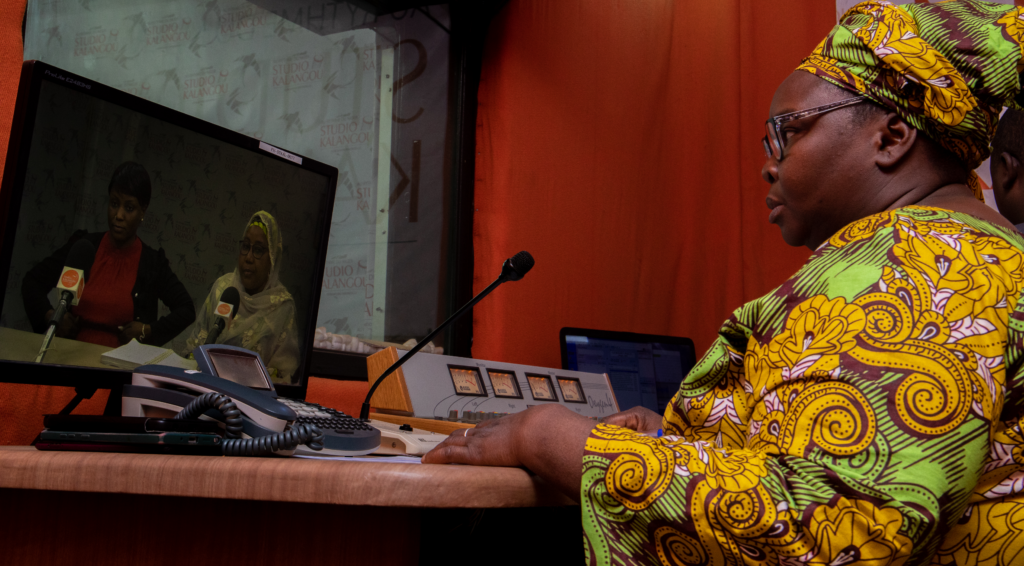
Interview with Adama Dawaki, Managing Editor of “Le Niger sur Kalangou”, Studio Kalangou, Niger
by Céline Kohlprath, Head of Communication and External Relations.
Studio Kalangou is a daily radio news program based in Niger. It is broadcasted in five languages by 52 partner radio stations, reaching almost 80% of the country’s population. Since the Nigerien coup d’état of July 26, 2023, Studio Kalangou’s team of 50 journalists and correspondents has continued the program’s core mission of providing reliable information on a wide range of topics to the country’s citizens. Adama Dawaki, Managing Editor of the “Le Niger sur Kalangou” radio program, explains why it’s vital that women are involved from the earliest stages of the peace process and beyond.
How big a seat do women currently have at the negotiation table following the coup?
I’m sorry to say that women have been left out of both the internal discussions within Niger and the international diplomatic negotiations being conducted in Africa by ECOWAS members and outside the continent. This is a great shame and must be redressed. Women need to be able to contribute to the political dialogue from the very start of the crisis, and not just be involved at a later stage during the negotiations. After all, women are affected the most when it comes to issues relating to human security. They’re in charge of running the household and looking after children and play a central role in managing the crises affecting their community or re-establishing dialogue. Experience shows that involving women in peace talks results in a more durable, sustainable peace.
What obstacles do female journalists face when it comes to covering political or security-related topics?
More and more female journalists are joining editorial teams across the country, but we’re still under-represented. The old hierarchies and stereotypes refuse to go away, unfortunately. Very few female journalists cover political or security-related issues. Some editorial teams will instantly question a female journalist’s ability as soon as she brings up any topic relating to politics or security, and limit women to covering social issues. So there’s still a long way to go, but the situation isn’t impossible. Personally, I’ve always wanted to get out and talk to people, communities, and politicians to help enhance the impact of my work. I’ve built up an interesting list of contacts during my career. I’ve worked for Studio Kalangou for seven years now, and I’m currently working, with other female colleagues, on managing our national cross-topic news magazine called ‘Le Niger sur Kalangou’. We’re also working together with our male colleagues to try to give women a voice in debates and forums. Sadly, it’s not always easy to find female guests. That said, women engage in civic participation to a greater extent than men in our country. During our elections, the majority of votes are cast by women. It is our duty to give them a voice and to ensure they’re heard more – and taken more seriously – in our society.
Would political outcomes be different if women were listened to more often?
It’s difficult to say. What’s certain is that women have unique access to conflict resolution within their communities, which they can utilize to influence public decision-makers. Ignoring women’s voices on safety issues can have drastic consequences. I come from the Tillabéry region, for example. It’s where the borders of Niger, Mali, and Burkina Faso meet, and for the last decade, the region has suffered from inter-community fighting and a deteriorating security situation due to the presence of unidentified armed groups. Farmers can no longer access their fields, and the population is going hungry as a result. Almost 100,000 people have fled the region to date. A situation like this just isn’t sustainable, and that’s something that women there have been saying for a long time.